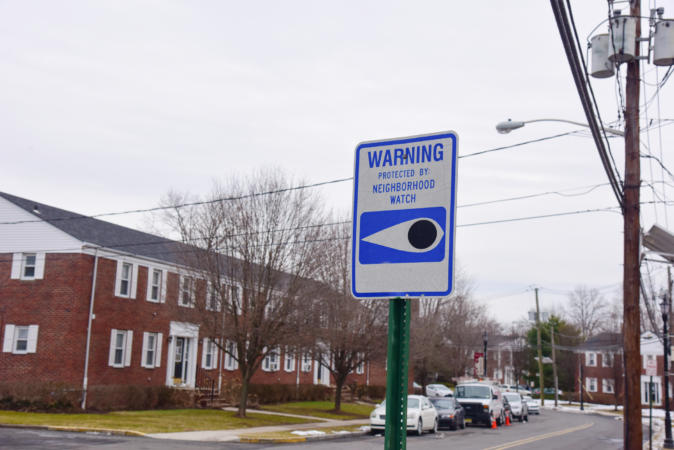In February 2018, Amazon acquired Ring, a smart doorbell company in a $1 billion deal. Amazon followed that acquisition up only three months later by launching a new app called Neighbors through Ring.
Describing itself as the “new neighborhood watch,” Neighbors is designed to allow users to receive real-time crime updates from their neighbors. On the surface, it seems like an innocent project. However, Neighbors is a strong example of how surveillance companies like Ring manufacture paranoia to sell back to you.
Neighborhood watch relies on the idea that you never know what’s going to happen, so you need to remain prepared. By flooding phones with crime updates and nothing more, apps like Neighbors can create a feeling of unease that often relies less on facts and more on pre-existing distrust of people of color.
As reported by Motherboard, videos posted on Neighbors disproportionately show people of color with descriptions relying on racist language or assumptions. After reviewing over 100 user-submitted posts in the app, using VICE offices in Brooklyn as the home address, Motherboard found that the majority of people reported as “suspicious” were people of color.
“In many ways, the Neighbors/Ring ecosystem is like a virtual gated community: people can opt themselves in by downloading the Neighbors app, and with a Ring camera, users can frame neighbors as a threat,” reporter Caroline Haskins wrote.
The notions of people of color — particularly Black people — as inherently suspicious is nothing unusual. Black people have far too often been viewed as being out of place even while in their own neighborhoods. This has been showcased with viral incidents of white people calling the police on Black people for using community pools, barbecuing in public parks, or simply just existing.
Surveillance of Black communities existed long before the digital age with programs like COINTELPro and even biometric identification through slave passes. Through anti-Blackness, Black people are outside of the gated community that Neighbors and Ring create. By virtue of being “out of place,” Black people must be under constant watch, for everyone else’s safety.
Amazon has worked to establish a surveillance network through Ring partnerships with law enforcement. The company has already partnered with over 400 agencies, according to a blog post published on Wednesday. CNET recently revealed that Amazon uses peer pressure and incentives to convince police to join the Ring network.
These partnerships are opening up what Atlantic writer Sidney Fussell described as a regulatory grey zone. In an article, Fussell wrote:
“Suspicion is currency. Selling consumers a 24/7 surveillance apparatus of their own making shrinks police oversight, expands the network of cameras blanketing American cities, and sends money to Amazon. That’s the trick of high-tech home surveillance: For users, it feels empowering. But it also creates a regulatory gray zone: When private citizens own the cameras, their footage isn’t subject to the same rules as police surveillance.”
Ring isn’t Amazon’s first foray into developing controversial technology that would increase mass surveillance. The company also created Rekognition, a facial recognition program that is in use by law enforcement across the country.
Recent bans on facial recognition note how surveillance impacts already vulnerable communities differently. San Francisco’s ordinance says, “surveillance efforts have historically been used to intimidate and oppress certain communities and groups more than others, including those that are defined by a common race, ethnicity, religion, national origin, income level, sexual orientation, or political perspective.”
The same can be said of the surveillance network that Amazon is establishing with Ring. However, unlike Rekognition, Ring is marketed towards regular people. It’s meant to provide cameras for your homes, Airbnbs, and more.
This is where the danger with Ring lies. By bringing in the public, Amazon can capitalize on old racial stereotypes and fears. On apps like Neighbors, users step into an echo chamber which perpetuates the idea that people of color are criminals who do not belong.

